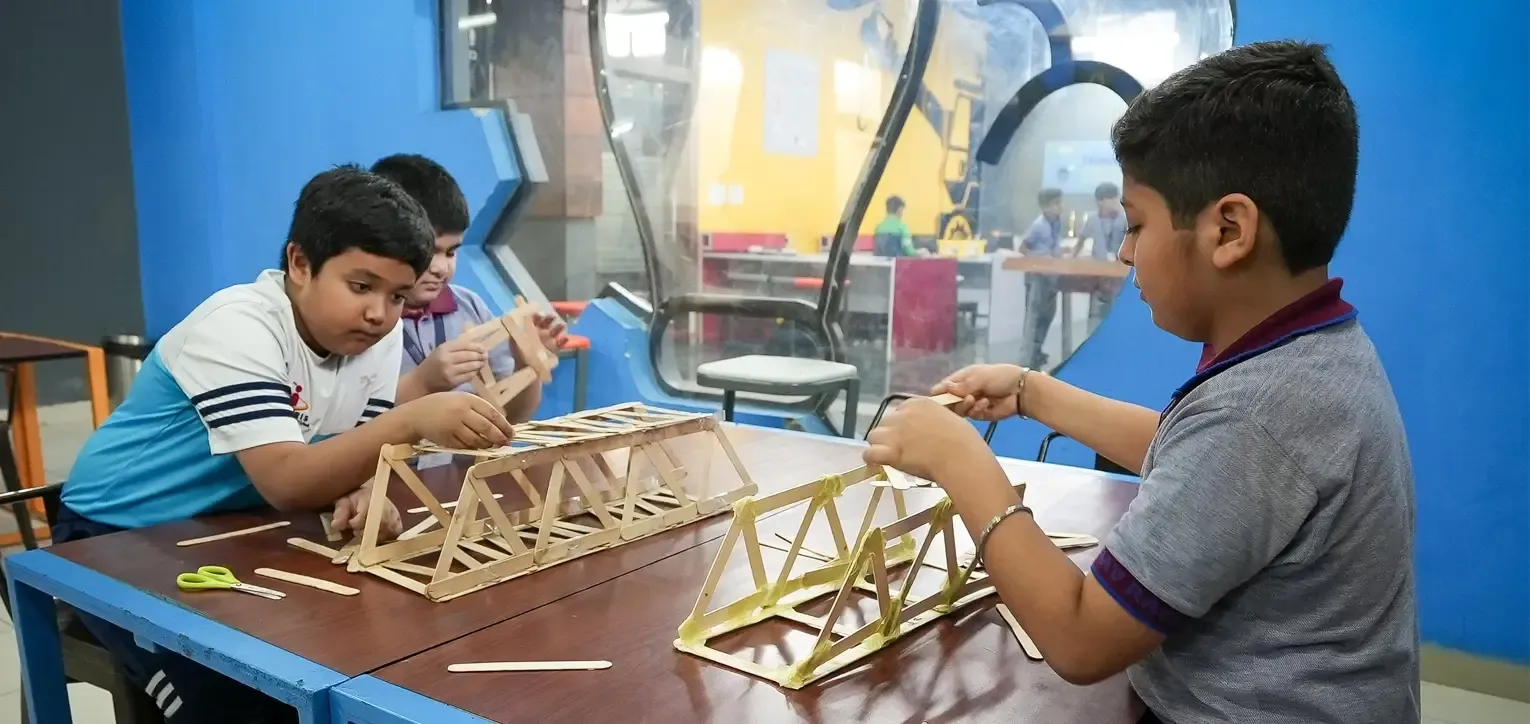New parents don’t just want a school with fancy classrooms. They want a space where their child is excited to learn every morning. A place that makes him/her curious and happy. Like many parents, they asked the same question: How to choose the best school for our child? It is a choice that goes beyond academics. It is about finding a second home where your child can truly flourish. There are many schools. Some may look good but might not fit your child’s needs. It is confusing to pick the right one. The good news is you can use the following key points to help. Look for a school with a strong curriculum. Schools following the CBSE or IB boards are popular. They prepare students for exams and life. Schools that include projects and teaching skills help children think better. Good schools teach more than facts. They focus on creativity and teamwork. Subjects like coding or environmental studies keep children up with today’s world. The curriculum should balance academics with practical skills. Schools that add skill training prepare children for future jobs. These skills include communication and digital literacy. Such schools help students stay ready for changing times. Teachers matter a lot. Ask about their training and experience. Good teachers understand how children learn differently. They help students feel confident. Great teachers notice when a student struggles. They offer extra support. They make the class a safe place to ask questions and share ideas. Teachers who care listen to students. They encourage questions and praise effort. A good teacher builds a positive learning environment. This helps children develop a love for learning. The school should have clean and safe classrooms. Modern tools like computers and smart boards help learning. Facilities such as science labs, libraries, and sports grounds show care for all-around growth. Good infrastructure means: They help children enjoy learning and explore their interests. Facilities for sports like cricket or swimming encourage physical fitness. Libraries with many books create a reading habit. Schools with good infrastructure offer more chances to learn in different ways. Safety is very important. Check if the school uses CCTV cameras. There should be secure entry points. Staff trained for emergencies is a plus. Ask about how the school handles bullying and health issues. Schools with counsellors or support staff make children feel safe. Safety also means clean classrooms and hygienic washrooms. Schools should have first aid and quick medical help. A calm and safe environment helps children focus on their studies. Look for schools that have more than books. Activities like sports and drama build life skills. Leadership and community service programs teach responsibility. Extra activities help children grow in confidence. They learn teamwork, time management, and communication. Schools that mix arts and sports with studies create balanced students. Some schools offer clubs like debate, science, or environmental clubs. These help children explore interests and talents. Opportunities to participate in competitions improve their self-esteem. Schools should teach respect and kindness. Programs for mental health teach stress management. When children feel supported, they enjoy school more. Children learn social skills when schools encourage good behaviour. They also learn to face challenges calmly. Schools also have counsellors to help students with bullying. Emotional support allows children to grow into responsible adults. Teaching values creates a better school and community environment. Good schools involve parents. They hold meetings and share regular updates. Children benefit when parents and teachers work together. Parents who know about their child’s progress contribute more to their education. They support learning and the values taught at school. Some schools have parent-teacher associations. These groups help parents stay involved. Schools may invite parents to events and volunteer opportunities. This builds a strong school community. Think about the school’s location. A nearby school saves time and energy. Check if the school transport is safe and reliable. Long travel can tire children. Safe and comfortable travel helps children focus in class. School timings should fit your family routine. Early or late timings may cause stress. Convenience helps maintain regular attendance. School fees are important. Don’t choose just based on cost. Compare fees with the quality of education and facilities. Ask if there are extra charges for uniforms or books. Schools with clear fee structures are easier to manage. Some schools offer scholarships or discounts. Flexible payment options ease financial stress. Good value means you get quality education without an extra burden. Research the school’s reputation. Talk to other parents. Read online reviews and visit the school if possible. Look for schools known for good results and happy students. Schools with successful alumni often provide a strong foundation. Check if the school has won awards or recognition. Such honours may indicate quality teaching and leadership. MRIS schools use these key points well. They have branches in Faridabad, Gurugram, Noida, Mohali, and Ludhiana. MRIS also has both CBSE and IB curricula. The focus is on good teaching, overall growth, and safety. MRIS encourages skill learning through labs and special programs. Sports and arts are part of daily life. Small class sizes mean your child gets attention. MRIS also includes: MRIS prepares children not only for exams but also for life. It helps students develop confidence and skills. Choosing a school affects your child’s growth. Use these 10 points to help decide. Explore MRIS schools in your city. Contact their admissions team for more details. Give your child a chance to learn happily and grow well. Make a careful choice today.10 Key Factors to Consider While Choosing the Best School for Your Child

1. Academic Curriculum
2. Qualified and Caring Teachers
3. Infrastructure and Facilities
4. Safety and Security
5. Holistic Development Opportunities
6. Focus on Emotional Wellbeing
7. Parental Involvement
8. Location and Convenience
9. Affordability and Fee Structure
10. Reputation and Reviews
Why MRIS Schools Are a Good Choice
What to Do Next

